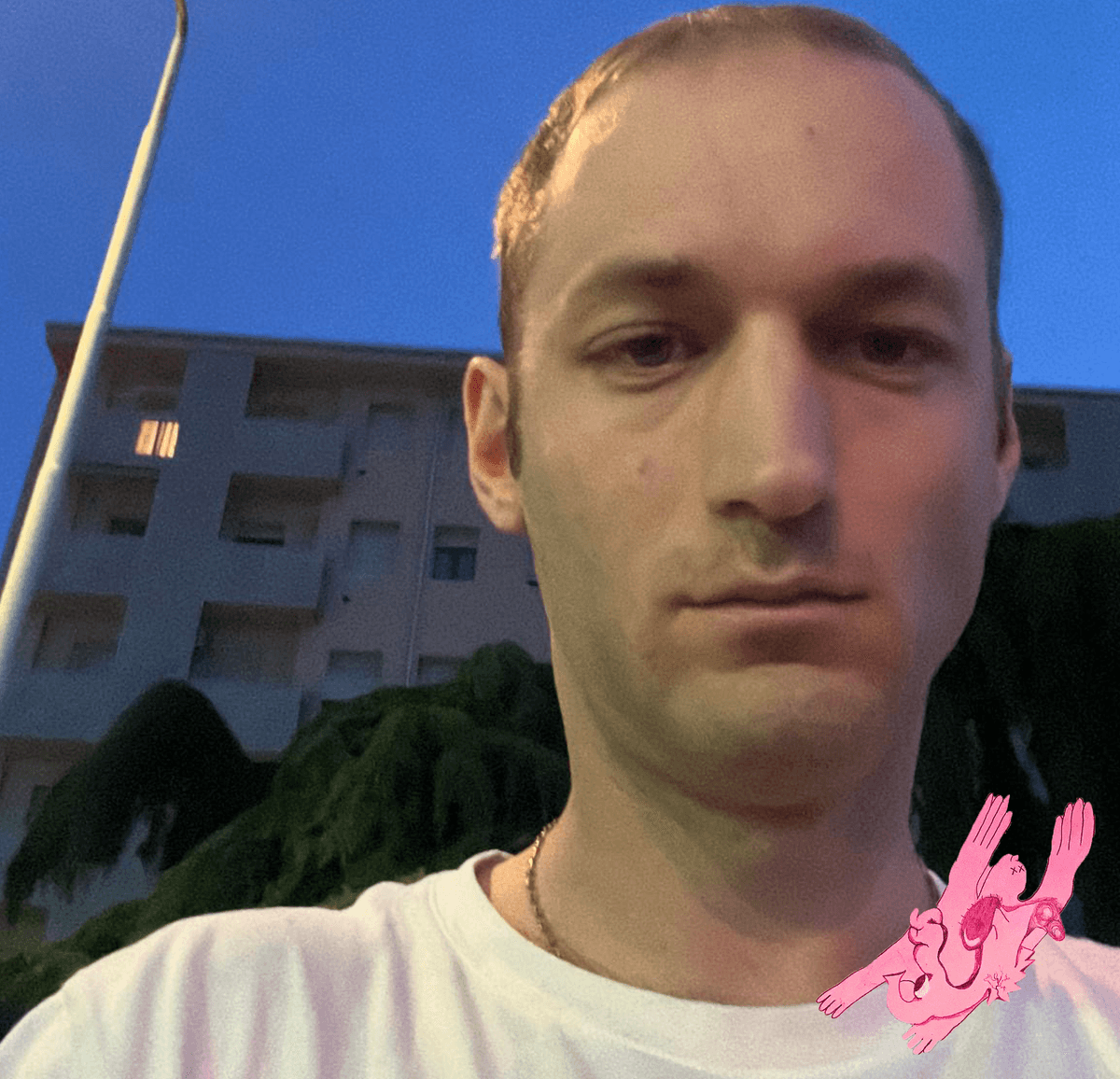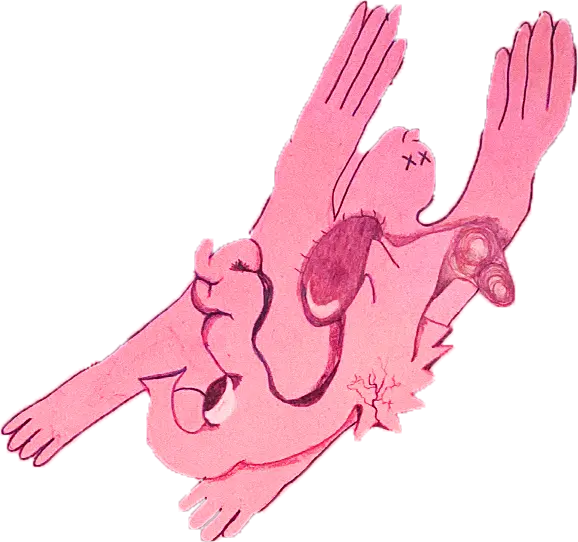DICIANNOVE
Giovanni Tortorici

TESS POLLOK: You’re a filmmaker, you were the Assistant Director on Luca Guadagnino’s We Are Who We Are and you’re making your directing debut with Diciannove. It’s a coming-of-age film about a nineteen-year-old Italian boy, is it in any way autobiographical? What drew you to this genre?
GIOVANNI TORTORICI: As you can see in the film, I was very into literature when I was that age, so I tried to structure the film to communicate that experience. I was a big fan of Giacomo Leopardi and his work, for example, and his idea that writers and artists are always better when they’re talking about themselves. So I set out to make a film that really directly communicated my own experiences at that age. I was thinking about my past and what a strange year it was. It was a challenge to create a story that was composed of so much solitude, so many silences, and a lot of literature. I found it challenging, but that’s really what it was like for me at 19 years old.
Scene from Diciannove
POLLOK: What were you reading at that age? Who are some of your favorite authors?
TORTORICI: I was very interested in the Italian language and I read a lot of pre-20th century literature. I got this idea into my head at the time–and this is not correct at all–that after the 19th century the Italian works were too corrupted by French and English influences. Obviously, dumb, and a bit reactionary, but I think it was mostly a result of neurosis and repression that I felt that way.
In Italy, the church had a very strong influence on what was allowed to be written. It was a little bit less regressive in terms of censorship with France and England, unfortunately for us. Italian literature from that period could be quite moralistic because of that–with some exceptions, obviously, like Leopardi. I also loved Manzoni, who was very Catholic. I loved the Jesuits of the 17th century, including Daniello Bartoli, Francesco Pallavicino, and Paolo Segneri. Their work could be really graphic, though, they were always describing the violent deaths of Jesuits around the world. Because they were missionaries–do you say that in America?
POLLOK: [Laughs] Yes! We say missionary in America. Did you draw on these influences in terms of how you shot the film, or chose to communicate in certain scenes?
TORTORICI: I think in some ways, yes. I was very focused on language when I was younger and when I switched to filmmaking I started thinking very intensely about the visual language of cinema. For me, that was so important in literature, that was everything, so understanding it in filmmaking became critical. I remember seeing Suspiria for the first time and focusing on the first few scenes, from then on I tried to construct a language of cinema that could economically express ideas with images.
POLLOK: Were there any unexpected challenges in shooting this film?
TORTORICI: It went pretty smoothly, actually. I think shooting the first scene was scary for me because I was frightened that I couldn’t actually make the whole movie. But it went very naturally from there. I love them all, I love the crew, the producers, the actors.
POLLOK: What were some of the cinematic influences on the film?
TORTORICI: I was very influenced by horror movies from the ‘70s, like Tobe Hooper and Wes Craven. I remember telling Manfredi, our actor who plays the main character, to watch those movies because I loved how graphic, honest, and realistic they were. I love Takashi Miike’s movies and there were definitely shots from those films I wanted to recreate with our movie.
Scene from Diciannove
POLLOK: What’s so special about being 19?
TORTORICI: It’s just so special to be entering adulthood. It’s the first year after school, the first year you are emancipated. It’s critical. You get to manage your own schedule, your own time for the first time.
POLLOK: How did you approach directing your actors in creating these characters? Did you direct them, or give them more freedom to be themselves?
TORTORICI: I directed them, for the most part, but they were all very generous in sharing the development of their character with me. For example, Manfredi, I think his character is very different from how I was when I was 19. He’s open-minded, very sensitive, he’s very contemporary in that way. I was very stiff and self-conscious back then.
POLLOK: Relatable, especially as a young writer. Did you know then that you wanted to be a filmmaker? Seems like you were oriented towards the novel more, at least at first.
TORTORICI: The original idea was to write novels, yes. But I still think of myself as a writer because I write my own screenplays. I would love to write an autobiography, or even just a biography of someone.
POLLOK: I love Speak, Memory, Nabokov’s memoir of his early childhood. Some of my friends have told me it’s their favorite book. Have you read that? Would you say the film had an autobiographical or ideological goal?
TORTORICI: I haven’t read that yet, I’ll remember that. I don’t know if I was focused on expressing a certain emotion with the film, but I did want to capture something about the experience of being that age and share it with other people. That was the modest philanthropic sentiment behind the film. Because I remember what it was like for me when I was younger, and I thought maybe it would have been helpful for me to see that experience represented onscreen. That was my goal, if I had a goal in shooting this film.
Scene from Diciannove
POLLOK: What advice would you give young people who are struggling with neurosis and repression?
TORTORICI: My advice is to be in touch with sex and your sexuality. I’m a Freudian and he believed neurosis came from repressed sexuality. In my experience, whenever I talk with people it’s always about sex, even if it’s covered with something or they’re trying to hide it.
POLLOK: I’ve had my fair share of experience in life where I’ve been dishonest about my sexuality and it makes your personality deformed and maladaptive. But sometimes it’s hard to be honest in life. There’s pressures, evil forces, that tempt you to be dishonest.
TORTORICI: I agree, it’s very tricky. Nowadays, people love to say that they are progressive and open-minded about sexuality, but it’s the opposite. Another idea from Freud is that civilization is the repression of sexuality. So because humans are the paramount of civilization, we’re also the paramount of repression.
POLLOK: Are you for psychoanalysis?
TORTORICI: I’m for Freudian psychoanalysis, I disagree with Jung, Freud’s enemy. I think Jung brings in religion and mysticism, which I think can be dangerous.
POLLOK: What’s dangerous about mysticism?
TORTORICI: I think, in the context of psychoanalysis, mysticism can make you lose touch with reality and with sexuality. For example, maybe you think you believe in God because when you were five years old you really loved your father, so you reproduce that idea with God. Mysticism complicates and confuses things.
Scene from Diciannove
POLLOK: Are Italians repressed?
TORTORICI: I think repression is worldwide. I’ve met so many people, from Los Angeles to New York, that are so repressed, even more than Italians, sometimes. I think Hollywood is full of repressed gay people. In my experience with actors, producers, and agents, they act open-minded but have so much gay repression. It might be why they chose cinema, because it offers them some relief from repression.
Cinema is the perfect job for sublimation. A book from a writer I really appreciate, Mario Mielli, who was a ‘70s Italian intellectual, has a chapter on cinema and queerness. It’s funny because it’s such a cliché but it’s true, you find a lot of gay people in cinema. People are attracted to cinema specifically because of the sublimation element. Because you are so unsatisfied with your reality, you can escape into so many fantasies with it. Another one of Freud’s ideas is that all works of art are sublimations of sexuality. It’s a great idea, I think it’s genius and so true. The best works of art come from sexual repression.
GIOVANNI TORTORICI is an Italian filmmaker. His debut film, Diciannove, is in theaters starting July 25th. Find a theater near you here.
TESS POLLOK is a writer, critic, and the editor of Animal Blood.
← back to features
